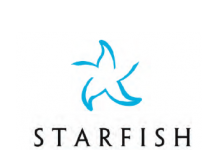On a warm night in June, 200 people are cramming into a renovated, rustic industrial space in the New Center area in Detroit. Hipsters, families, area youth groups, and native Detroiters alike are sitting cross-legged on the floor, breaking crusty Avalon bread and chatting with strangers and friends. Their occupations, appearances, and experiences may differ, but everyone is here for the same reason — to better the city.
The event is a Citywide Soup, hosted by Detroit Soup, a monthly dinner focused on improving the city of Detroit and connecting its residents, while awarding small, but meaningful grants to projects based in the city. Throughout the night, they’ll hear four unique presentations, as diverse in subject and scope as the audience members themselves, ranging from mobile app startups to ambitious youth outreach programs.
The night is emceed by Detroit Soup director Amy Kaherl, who calls Soup both an experiment and an experience. Each night features four presenters pitching projects that need funding. Each presenter tries to win that night’s grant, which is generated by attendees, who, in exchange for a $5 suggested donation, receive soup, salad, bread, and a vote for their favorite project. In addition to voting, attendees are encouraged to fill out sticky notes with suggestions for presenters on how to improve their proposals. With these, no one goes home a loser, and the event maintains a relaxed atmosphere.
“This isn’t ‘Shark Tank,’ ” says Kaherl.
Despite the event’s laid-back style, there are a few rules that apply to presenters. The idea must benefit an area in Detroit, Highland Park, or Hamtramck, and presentations are to be kept short and simple: four minutes, no technology. A brief, four-question Q&A session follows, then there’s the potluck dinner and voting.
Prior to the vote, attendees are encouraged to branch out from their pre-existing groups to get to know their neighbors. Kaherl explains that the social aspect is as influential as the grants.
“[You’re] invited to experience other human’s stories alongside your own,” she says. “It’s a non-sleazy way of networking. It’s a safe space to have conversation.”
Post-dinner, the winners are announced and the grants — typically around $1,000 — are collected. Whether presenters win or lose, they are always allowed to resubmit their ideas for future Soup events. At this particular Citywide Soup the winner was Detroit Horsepower, a program that teaches Detroit youths how to ride and care for horses.
MAKING SOUP
Detroit Soup is an outgrowth of Sunday Soups, a network of philanthropic dinners that takes place around the world from Asia to Africa to Australia. The first Sunday Soup was held in Chicago in 2007 and inspired the formation of the Detroit chapter several years later.
The first Detroit Soup was held in February 2010, when a small group of people gathered for a meal in a loft above the Mexicantown Bakery in Detroit, organized by artist Kate Daughdrill. There were no presentations, just discussions surrounding the future of Soup, which was initially focused on funding artistic endeavors in the city.
“There was no manifesto,” says Kaherl, but the group wanted to collaborate and work together to support creative projects while also empowering and connecting the community.
By April, Detroit Soup hosted its first dinner with a winner: a Rust Belt Architecture photo book created by photographer and graphic designer Justin Ames, who was awarded the first grant of $110. From there, Soup gained traction, and widened its scope beyond traditional artistic efforts. Today, Citywide Soups host around 200 people per event, funding everything from jewelry made of urban decay to a program empowering incarcerated youth.
Since Detroit Soup’s inception in 2010, the group has hosted more than 100 dinners and raised more than $100,000 for city projects. Most of the money has been sourced by Detroiters for Detroiters, but not exclusively. The event has attracted visitors throughout the state as well as other countries. The group was even featured in an in-depth piece by the BBC this spring.
As Detroit Soup has grown, it has relocated from its original loft space in southwest Detroit to the Jam Handy, a massive renovated warehouse on East Grand Boulevard, which was once used as a studio for filmmaker Henry Jamison “Jam” Handy. But the growth hasn’t stopped there. In addition to its main Citywide Soup, Detroit Soup has expanded into 10 neighborhood sub-Soups.
The neighborhood Soups vary only slightly compared to Citywide Soups. Presenters follow the same rules, but as one might expect, their ideas must benefit the particular neighborhood in which they present. The ideas are usually smaller, such as local soccer teams needing equipment or money for transportation, but some are much more elaborate. A Hamtramck Soup in July hosted two students from Germany who were eager to build a social plaza on a dilapidated lot nearby.
Attendance at neighborhood Soups vary as much as the ideas themselves. Summer Soups typically see around 30-40 attendees, with Fall/Winter Soups bringing in anywhere from 40-120 people. In terms of funding, Neighborhood Soups also tend to be smaller, bringing in anywhere from $100-$400.
The funds are then matched by Detroit Soup to make the grant more significant for the presenter. Despite their smaller numbers, Neighborhood and Communications Director Joanna Duweke says neighborhood soups have been a big success.
“Some people don’t even know that Detroit Soup exists and they only know their neighborhood Soup exists,” Duweke says.
That could be changing soon. This September, neighborhood soups began restructuring their current format and were beginning to expand into other Detroit communities.
“Eventually we would like to have coverage of all of Detroit,” Duweke says.
INGREDIENTS FOR GROWTH
Part of the reason Detroit Soup has grown recently is due to the attention received by some of its most successful participants. Long before the organization was expanding into Detroit’s neighborhoods, the group invested in the Empowerment Plan, one of Detroit Soup’s early winners.
In 2011, Veronika Scott was attending the College for Creative Studies when she developed the Empowerment Plan for a product design class. She wanted to create winter coats that could be converted into sleeping bags for the homeless. The first prototypes were rough; Scott didn’t sew, nor did she have much experience running a business.
“Being an art student, my budgeting skills weren’t the greatest,” says Scott. “When I built the first business plan I really wrote down that we needed $1,600 to operate for a year. I don’t even know where I pulled that number out of.”
The project grew into a passion. Scott presented her business plan — which she admits was more of a well-designed pamphlet than an actual business strategy — to anyone who would listen: students, professors, and the homeless. She spent three days a week for five months at homeless shelters connecting with those who would benefit from her product. Seeking further advice, Scott reached out to a CCS professor who had heard of Detroit Soup. Together, they attended a dinner above the Mexicantown Bakery, where Scott pitched her idea.
“It was a good proving ground,” Scott says. “I needed to know if this was going to be a good idea that even the community around me would want.”
It was. Scott took home that night’s $800 grant, but she also gained the confidence that would propel her to grow the project.
“The fact that they thought it was a good idea was hugely influential to me,” Scott says.
In the years since Scott’s Soup victory, the Empowerment Plan has grown immensely and attracted a great deal of media attention. CNN, NPR, The New York Times, and several other major media outlets have reported on the Detroit project. Today, the organization employs around 30 people, including 20 homeless women. They have produced and distributed more than 10,000 coats across 29 states and four Canadian provinces.
Overall, Scott’s experience with Soup was a positive one, and she encourages other Detroit projects to seek it out, whether they think they have a shot at winning the cash or not.
“It’s not a win or lose scenario,” she says. “It is something that can really help you grow and understand ‘Does the community need what I’m doing?’ ”
Answering that question is a crucial step for presenters who are hoping to get their ideas off the ground, and whether you’re presenting or attending, Duweke says it’s the community itself that makes Detroit Soup worth its salt.
“I think that the connections that are made between the actual human beings that show up, regardless whether they’re presenting, that’s where the real impact lies.”
Soup by the Numbers*
115: Number of Detroit Soup dinners to date
114: Number of projects funded by Detroit Soup grants
$18,703.05: The amount of money raised by Detroit Soup to date in 2015
$103,211.81: The total amount of money raised by Detroit Soup to date
*Numbers at press time
|
|
|










